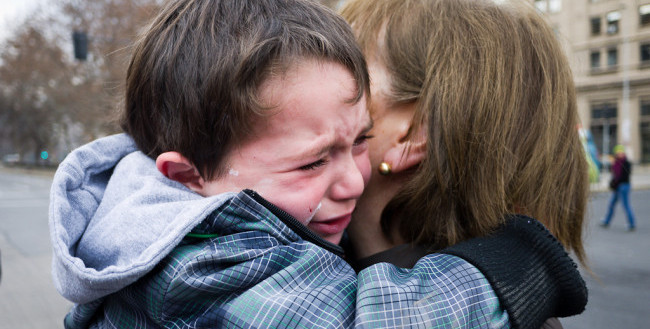
Spanking has been sparking arguments for years now, with the ongoing debate that asks if spanking is actually helpful or harmful to children. A new study published in the Journal of Family Psychology may be able to finally put the debate to rest with its findings, which pored over 50 years of research on the effects of spanking.
The bottom line: It can do far more harm than good.
The Study Details
Researchers from the University of Texas and University of Michigan examined data from 75 studies involving more than 160,000 children to see what effects spanking had on its recipients. Researchers stressed that the spanking to which they referred was an open-handed hit on the extremities or the behind, and not more abusive measures.
Yet the effects of even that open-handed hit were similar to more abusive measures, greatly increasing the risk of detrimental outcomes.
What Spanking Does (and Does Not Do)
One big finding focused on what spanking does not do – and that is get children to obey. Researchers said spanking showed no link to “more immediate or long-term compliance,” which is exactly why parents may spank children in the first place.
Spanking was instead shown to increase the child’s risk of experiencing:
- Aggression
- Antisocial behavior
- Behavior problems
- Impaired cognitive ability
- Low moral internalization
- Low self-esteem
- Mental health issues
- Negative parent-child relationship
In other words, spanking was shown to pretty much do the exact opposite of what parents generally intended it to do.
Into Adulthood
Spanking was additionally shown to be the proverbial gift that keeps on giving, leaving lasting effects that followed children into adulthood. Adults who had been spanked as children were at a higher risk of exhibiting antisocial behaviors and experiencing mental health problems. The more the individual had been spanked, the more likely he or she was to suffer from such issues.
Perhaps not surprisingly, adults who had been spanked as children were also more likely to engage in or at least support the idea of physical punishment for their own children. This mindset keeps the cycle going, passing the same attitude toward physical punishment down through the generations.
Breaking the Cycle
Adults who were spanked as children, or even those who weren’t, may benefit from a few tips from clinical psychologist Lisa Firestone.
Face the pain of your own past. Unresolved trauma in an individual’s life can have a negative impact on his or her children. People can become better parents if they can take an honest look at their own childhood, fully acknowledge any pain, and then create an account of their lives that helps it all make sense. One important thing to remember is parents are human, too, and even if yours didn’t do the best, they did the best they knew how to do.
Engage in calming techniques. Spanking and other aggressive behaviors often occur when things are tense and emotions are high. Take a few deep breaths, take a walk, ride your bike or otherwise step out of a stressful situation before you unthinkingly react.
Lead by example. Treat your children with aggressive behavior and they’ll be inclined to pick up the behavior for themselves. Engage in your calming techniques and they can instead see how you become cool-headed and controlled, strategies they may be likely to emulate.
While it may not have taken an in-depth analysis for you to decide that spanking is not beneficial for anxious children, the study’s massive body of research may help to squash the ongoing spanking debate once and for all.
SOURCES:
Photo Credit: francisco_osorio via Compfight cc





